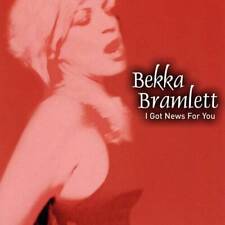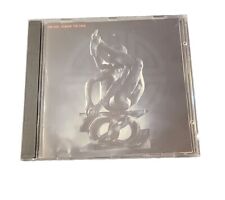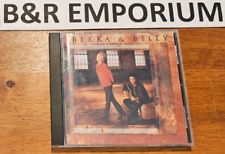|
1974
Cliff Davis Blooz In the preceding seven years Fleetwood Mac clearly had more than its fair share of ups and downs. Nothing, however, could have prepared it for what was to come in 1974. This phase in the band's saga actually starts in the fall of 1973. As was in the case of so many previous traumas, Fleetwood Mac was on the road. Supporting the (relative) success of Mystery To Me , the band was scheduled to gig extensively in America. The tour had already begun when Mick Fleetwood noticed something was awry: Bob Weston, always the ladies' man, was spending a whole lot of time with Mick's wife, Jenny. Not surprisingly, it became increasingly difficult, as the tour progressed, for the two musicians to appear onstage together. It didn't help that Jenny confirmed his worst suspicions. Mick toughed it out as long as he could, but by the end of October it was clear something had to give. Road Manager John Courage did the deed: Weston was sacked on October 26. The band contacted manager Clifford Davis (still in England) by phone and informed him that Weston had been fired, and since Fleetwood was so devastated, that the rest of the tour had to be cancelled. This resulted in a violent row across the transatlantic phone lines; Davis yelling to a dumbfounded Welch, "I own Fleetwood Mac!". Faced with the prospect of backing out on yet another series of dates, and fearing for his credibility, Davis did the unthinkable. Instead of cancelling the remaining gigs, he clandestinely assembled a group of musicians hitherto unknown to the band and put them on the road under the name Fleetwood Mac. The musicians themselves actually did have a link with the group, albeit very tenuous: they were members of the band Danny Kirwan was then recording with. Thus began the months-long Battle of Fleetwood Mac. Charges and countercharges were hurled; the band--the real band--sought and obtained an injunction to prevent the bogus band from performing, but were themselves prevented from performing--and therefore from earning a living-- while the legal procedings continued. Any plans for a new album had to be suspended. Since all of this occurred in the United States, the band decided to permanently relocate in America to minimize the need for transatlantic communting. It was just as well: American sales had long eclipsed the British market, which still mourned the loss of Peter Green. The months--and the lawsuits--dragged on and on, while the music press on both sides of the Atlantic followed the story with some interest. In March Epic records, in a shameless move to cash in on the band's troubles, reisssued the old Black Magic Woman album (itself a rerelease of the first two U.S. albums) in a new sleeve and title: Fleetwood Mac English Rose . Eventually things were, of course, decided in the real band's favor. The name "Fleetwood Mac" was ruled to belong to the two men whose names (at least partially) appear in it: Mick Fleetwood and John McVie. Given their horrible experience with their previous management, Mick and John took the unusual step of forming their own management company, Seedy Management, and took up the band's affairs. And thanks to the support from their label, Reprise (owned by Warner Brothers), a new album was recorded and released, and a tour to support it did finally commence. While the title of the new album, Heroes Are Hard To Find , may have reflected the band's state of mind at the time, the music did not. Seemingly reinvigorated by the near-destruction of the band, Bob and Christine did all the writing for the now-quartet band. A very mellow affair, Heroes contains two of Christine's best songs to date, the title track (released as a single) and the excellent "Come a Little Bit Closer". Welch is in fine form with "Born Enchanter", a further foray into esoterica like its predecessor "Hypnotized". The album did better on the US Billboard charts than any previous Fleetwood Mac LP, making it as far as #34 in late November. Two singles were also culled from the previous year's Buckingham Nicks album and released...and quickly forgotten. One of these, "Don't Let Me Down Again" was released in Britain-- three years before its parent album! Another interesting release in 1974 is the second (and final) album by that part-time British Blues Band, Tramp. Recorded in 1972, Put A Record On featured the talents of Fleetwood, Danny Kirwan, and Bob Brunning, in addition to all the other musicians in the first Tramp album. Despite the legal victories, as luck would have it, yet another personnel change occurred that shook the band to its core. The stalwart Bob Welch had admirably shouldered, along with Christine McVie, the artistic impetus of the band for nearly four years, and had contributed some of its best- loved songs. If anything a survivor of the excesses of middle-period Mac, he was worn out with the events of the previous year. Feeling he had nothing further to contribute to Fleetwood Mac, Welch quietly dropped out at the end of December 1974. It would be up to his replacements to help bring the Mac back to the level of its previous greatness--and beyond....
|









